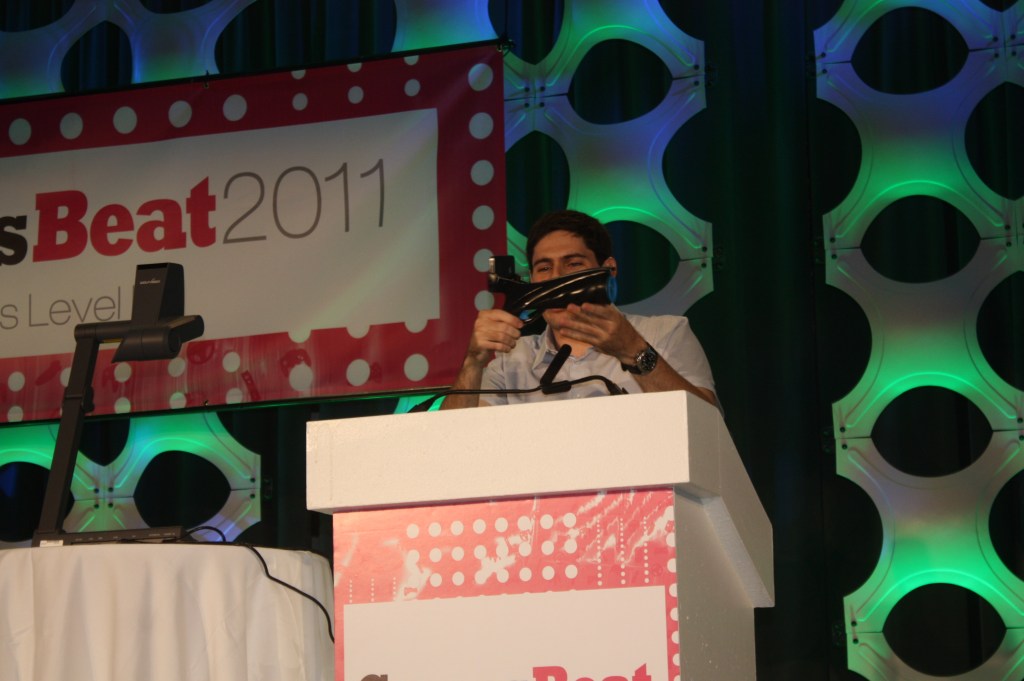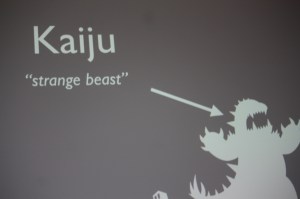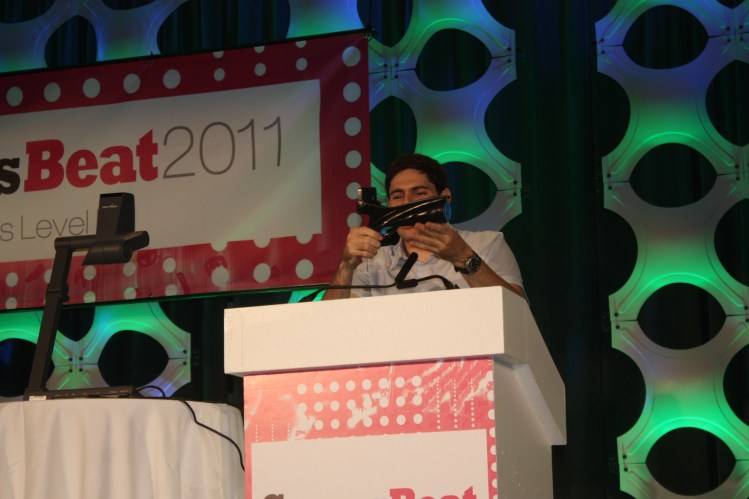 VentureBeat’s GamesBeat conference features a competition for gaming companies that have some kind of innovative or disruptive technology. This year, the competition features a lot of cool hardware and social games.
VentureBeat’s GamesBeat conference features a competition for gaming companies that have some kind of innovative or disruptive technology. This year, the competition features a lot of cool hardware and social games.
The winner gets an iPad 2 from Trinet and is enrolled in the August round of Yatizen’s game accelerator class. That is similar to incubators like Y Combinator, which offer companies advice and a little bit of funding to get them rolling.
Here are the participants for VentureBeat’s GamesBeat 2011 conference startup competition:
Metal Compass: The Israel-based company develops “real world” first-person shooter (FPS) games that use augmented reality. That means the phone serves as a “lens” for the game, turning the camera into a cross hair. When someone presses on the screen, it shoots a paintball wherever they are pointing the phone.
The company also develops toys that can transmit commands between the toy and the smartphone. The player plugs a smartphone into a toy — like a gun. The toy then registers a gunshot when the player pulls the trigger on the toy.
Haptify: This company adds haptic feedback — basically vibration — to smartphones and tablets. The application taps into the notification vibrations of the phone and then adds that to games. The application can produce more than 10,000 types of vibrations by tweaking the notification feature — like over-accelerating it or “breaking” it.
It’s funded by Immersion Corp, the company that brought “rumble” vibration technology to video game consoles like the Nintendo 64 and PlayStation. The company launched in March 2011 and is currently available for Android devices.

Kaiju Empire: This company wants to create games that bring comically outlandish Japanese-style monsters back to video games. The company is launching Kaijuland later this year, a social game that lets players create a ridiculous monster and wreck a city. The game will be available for mobile devices, the web and home consoles.
Over time the player can unlock new monsters and colors and become more powerful. Players can share their content with their friends, which will let them share monsters or make their own monsters more powerful. Friends can breed their monsters with their friends to create new monsters.
Zipline Games: Zipline Games is the creator of Moai, a game development architecture for developing games on multiple devices simultaneously. The company’s product is powered by Lua, an open-sourced scripting language that works across multiple device architectures. Games like Call of Duty and Angry Birds use Lua as a development language.
Bungie Aerospace, the Halo developer’s new mobile game studio, is the first company that is developing games with Moai. Crimson, the studio’s first mobile game, uses Moai. The company is currently raising funding and will incubate 15 games on its own in addition to licensing out the software.
 Protege Production: The company is developing a social networking game built around home interior design. It features 3D graphics and is designed to look slicker than typical social games like FarmVille, which use simple 2D graphics and sprites. Players can then invite their friends to visit their homes.
Protege Production: The company is developing a social networking game built around home interior design. It features 3D graphics and is designed to look slicker than typical social games like FarmVille, which use simple 2D graphics and sprites. Players can then invite their friends to visit their homes.
The game is available on iPad as well. The game is targeted to the average social gamer — a 43-year-old woman. It makes money off the purchase of virtual goods. The company will launch its game sometime next year.
Gbanga: This company makes a game that spreads virtual “treasures” across real geographic areas. Instead of going from point A to point B, the game is designed to encourage players to meander around in a city to collect virtual goods and become the “godfather” of a city. It’s a social game that ties in with social networks like Facebook, but it also has its own independent social network.
The game is a free application that makes money off selling virtual goods. It creates weekly “quests” that encourage players to compete with their friends to become godfathers and collect the most treasure. Around 12 percent of the players purchase virtual goods in the game.
 OneUp Games: OneUp Games wants to create a social game that is built around the experience of watching sports games. Its first product, Baseball Connect, works by playing “bingo” based on what’s happening in a baseball game. Whenever a player scores a hit, or a strikeout, or a bunt, a square in the player’s bingo board is highlighted. When they connect five squares, they win the game.
OneUp Games: OneUp Games wants to create a social game that is built around the experience of watching sports games. Its first product, Baseball Connect, works by playing “bingo” based on what’s happening in a baseball game. Whenever a player scores a hit, or a strikeout, or a bunt, a square in the player’s bingo board is highlighted. When they connect five squares, they win the game.
Players compete with friends who are watching the same game. The company has raised $250,000 in seed funding and will launch its first game on the App Store next week.
GuerillApps: This company creates social games that have a recycling twist. Terracycle, a waste collection group, can collect trash and deliver it to recycling centers in the real world for points in GuerillApps games. There are around 21 million Terracycle users.
The company’s first game, Trash Tycoon, launched today. It behaves a lot like a normal social game like FarmVille or CityVille. Players have to “rescue” a city that is covered with trash by cleaning it up. When they deliver a box of recyclable trash, they get points. Players can upgrade recycling centers to make better toys and products.
VentureBeat's mission is to be a digital town square for technical decision-makers to gain knowledge about transformative enterprise technology and transact. Learn More

